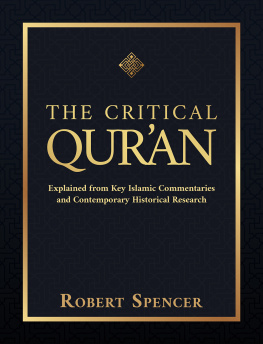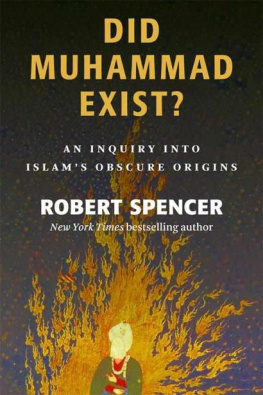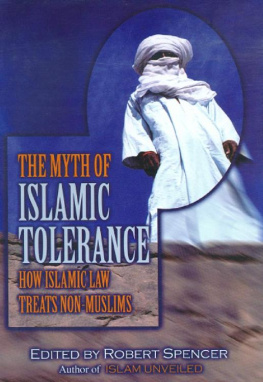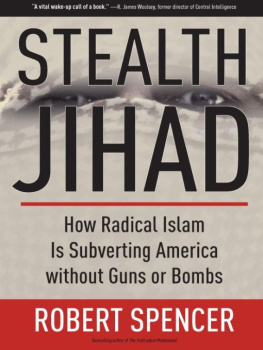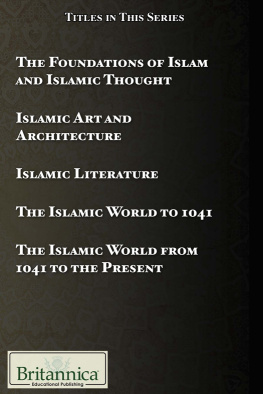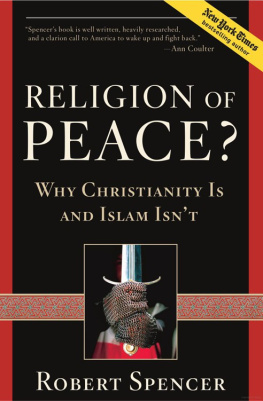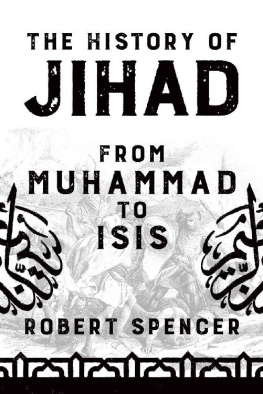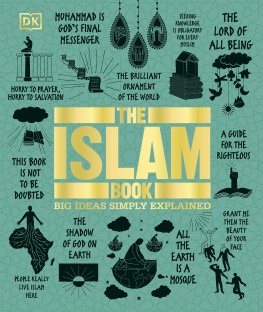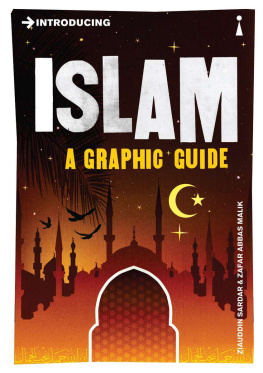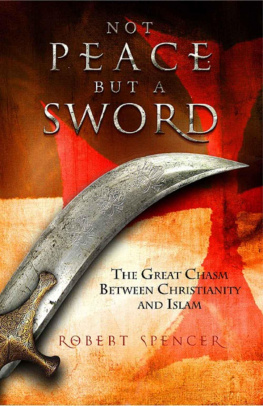


For S.
Contents
Foreword
MOST PEOPLE IN THE WEST KNOW VIRTUALLY nothing about Islam. A few may visit one or another Muslim country as tourists or perhaps on business, and find that the inhabitants, hospitable and vivacious, seem to be getting on with their lives like everybody else. The events of September ii therefore appeared to come from nowhere. What was this holy war against the United States and the West, this jihad, declared by Osama bin Laden, and how was it possible that to the Arab and wider Muslim world he became an instant popular hero because he had organized the murder of several thousand innocent people in New York and Washington? Westerners in general, and perhaps Americans in particular, had little or no idea that there were Muslims out there who so hated them, and little or no idea either of the causes of that hate.
In a series of interviews and statements, bin Laden made it clear that in attacking the United States he saw himself as a Muslim doing God's work. And that is the reason why so many Muslims from Beirut and Baghdad to Indonesia cheered and danced in the streets at the news of September ii. Leaders and opinion makers including President George W. Bush, however, were quick to assert that bin Laden was a terrorist pure and simple, whose actions were a violation of Islam rather than a natural expression of it. Islam, these leaders maintained, is essentially a peaceful religion.
Apologetics of this kind served a useful purpose. At a time of tension and potential backlash, it was right to ensure that innocent Muslims were not held guilty by association. But in Islam Unveiled, Robert Spencer now argues that indeed bin Laden sincerely meant what he said, and that he and the millions of Muslims who admire him find sanction in Islam. Far from being extremists or perverters of the faith, they interpret its tenets correctly.
From its inception, Islam has been a revealed religion with a text, the Qur'an, which is considered the Word of God and therefore sacrosanct. The Prophet Muhammad, founder of Islam, and then the caliphs who immediately succeeded him at a time of war and imperial expansion, were simultaneously head of state and religious leader. Down the centuries, and still today, in spite of exposure to nationalism and the formation of a variety of nation states, that combination has remained an ideal form of governance for many Muslims. Islam has never known the separation of church and state which has determined the political and social evolution of the West, leading as it does from absolutism to democracy, from obedience to civil rights and from blind faith to reason. Judaism and Christianity were also originally revealed religions. The Reformation and the Enlightenment were the most well-known manifestations of a long process of rational inquiry that gradually altered the general understanding of the relation between church and state, permitting the concessions and compromises toward those of other faiths upon which a civil society rests.
For many centuries, absolutism served Islam well enough, and there are great achievements to show for it, such as the science and architecture of the Muslim Middle Ages. Certain of their superiority, Muslims felt they had nothing to learn from the despised and barbarian West. By the time they realized that this was a mistake of historic proportions, it was too late to do anything about it. Stultified in their absolutism, altogether backward, Muslims and their lands were almost entirely overrun by one or another Western empire. This prolonged contact with the West has changed the landscape with such physical features as oil wells and airports and skyscrapers, but only a minority of individuals have adopted Western values and ways of thinking.
Through the twentieth century, Muslims struggled to regain control of their history from the Western empires. In the outcome they won their independence, but not their freedom. Absolutism remains the rule. Some Muslim countries have religious rulers, others have nationalist and secular rulers, but all (with the doubtful exception of Turkey) are despotisms, in which the rule of law is a matter to be negotiated. Everywhere the secret police and the military are an ominous presence. This is what inhibits the creative energies of Muslims and prevents them doing justice to themselves. Anyone who knows Muslim countries, however, will also be aware that the rigidity of Islamic doctrine conflicts with the actual daily conduct of Muslims. The imam or mullah who comes beseeching for a bottle of whisky or a bribe is a familiar figure, and so is the rabid anti-Western Islamic extremist who asks how to get his son into an Ivy League university. Hypocrisy smoothes the rough surfaces of every society, and perhaps there is more to rejoice in that than to blame.
Ernest Renan, who founded the study of comparative religion more than a century ago, thought that Islam was the engine of this spiritual and temporal despotism, describing it as "the heaviest chains that ever shackled humanity." Robert Spencer follows in that tradition. To him, the concept that the Qur'an is a perfect book leads to anti-intellectualism. Certainly there have been no Islamic Renans; and exegesis of the sacred text as practiced by Christians and Jews would be blasphemous. The result, as Spencer puts it, is that "bigotry, fanaticism and plain ignorance are rooted in some of the central tenets of Islam." There is no scope for questioning the absolutism inherent in the faith and its accompanying Islamic society, or for reforming the injustices deriving from it.
One unequal relationship postulated by Islam is that between men and women, and another is between master and slave. Robert Spencer may sound polemical on these topics, but he is only reporting the reality. Women in Islam are victimized by the Sharia, or Islamic law, which privileges men in numerous social and legal instances, and in some countries they are further victimized by customs such as polygamy and female circumcision. As for slavery, it still survives in a few Arab countries including Sudan, Saudi Arabia and Mauritania.
A third unequal relationship goes back to the origins of Islam, when Muslims conquered other peoples, then put them to the sword, converted them or offered them the choice of becoming dhimmi, that is, second-class citizens suffering social and financial impositions that did not affect Muslims, but protected by the state in return. The assumption of Muslim superiority and dhimmi inferiority underlay the rightful ordering of the Islamic world. In the modern age, however, such an assumption evidently became absurd. Twin reactions have followed in the House of Islam: self-pity at finding itself in such backwardness, and hatred of those thought to be responsible for it. Inflamed by this mindset, Muslims all around the perimeter of the Islamic world are fighting their neighbors of other religions-Hindus in India, Communist and Buddhist Chinese, Jews, Christians in a score of countries, and pagan animists in Africa. In this light, it is wishful thinking to bracket Islam and peace.


